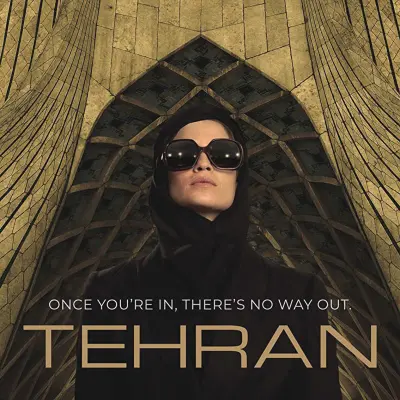Apple TV+'s Tehran looks at Iran through an alternately adversarial and nostalgic lens
-

As a TV-viewing experience, Tehran is "flawed: At least a few episodes too long, lacking plausibility or tension, turgid when it wants to be zippy," says Daniel D'Addario. "...As a document of its moment, it feels built to flatter the present-day American posture towards Iran, treating its threat as beyond negotiation, worth engaging with only to dismantle." He adds: "The protagonist, Mossad agent Tamar Rabinyan (Niv Sultan), infiltrates the nation following an emergency landing of a passenger jet in the capital city; she is on a mission that, should it succeed, will have the long-tail effect of thwarting what the viewer is made to understand are Iran’s nuclear ambitions. The series’s adversarial side comes through in Tamar’s mission, and in the people she encounters. Its nostalgia stems from the idea that she, indeed, is one of them, a citizen of an Iran that was: She was born in Iran and lived there until her family fled, and has both family ties and a sense of Iran as a place worthy of her saving it. A relationship with a figure in the Iranian opposition (Shervin Alenabi) as well as time spent with Arezoo, an aunt who remained behind (Esti Yerushalmi), cement that sense. Her exposure, and ours, to Iranian street life, as in the case of Arezoo’s daughter (Sogand Sara Fakheri), who protests “immodest dress” and calls the opposition movement 'meddling lowlifes,' represents Iran in one uncomplicated way, a way that makes this series’s existence on American TV make sense. Tehran’s biases tend to flatter American prejudices, too. Arezoo frets 'I don’t know how she got involved with the Muslim students,' flatly equating Islam with the enemy; those same Muslims chant about jihad at a protest, with one declaring, 'Reformists, Conservatives, it’s all over for you!'" ALSO: With its heart on its sleeve, Tehran's a better tragedy than it is a thriller — and perhaps intended that way.
